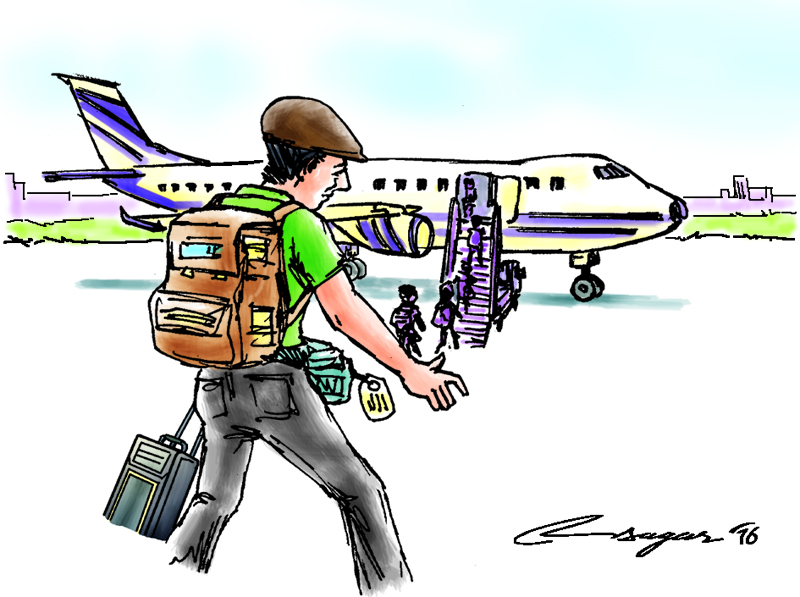Job aspirants to Malaysia get some respite
Kathmandu, July 22
Migrant workers who received their visas before May 16 will be allowed to fly to Malaysia for jobs. The Ministry of Labour, Employment and Social Security (MoLESS) took a decision to this effect today.
People who have already received Malaysian work visas before May 16 can fly to the destination for jobs, the MoLESS said in a statement released today.
On July 21, the government had stopped sending migrant workers to Malaysia, one of the most popular labour destinations for Nepali youths. The government had taken this step as it was revealed that many companies were deceiving aspirants in the visa issuance process and charging extra fees illegally. The government has said it will resume the supply of workers to Malaysia only after both the countries sign a labour agreement.
However, the Malaysian government has said that it has received a bigger number of Nepali migrant workers in fiscal year 2017-18.
Foreign employment recruitment agencies had been urging the government since the ban took effect to allow those migrant workers who had already received the work visas to fly to Malaysia. According to them, there are about 1,000 female migrant workers who have obtained visas and are awaiting the government's approval to fly to the destination. The government, however, says there are only 450 such women waiting for the approval.
“There are many problems related to Nepali migrant workers in Malaysia like physical and financial security,” said Prakash Dahal, spokesperson for MoLESS. “We have held discussions with Malaysian authorities on many occasions and we have decided that we will issue new work permits to those aspiring to go to Malaysia now only after a new labour agreement is signed.”
As per Dahal, government is continuing talks with the Malaysian government to come up with a tangible solution. He added that the government will provide labour permits for Malaysia only after a pact is signed which will include details like minimum wage and other facilities, insurance and security benefits, among other issues.






